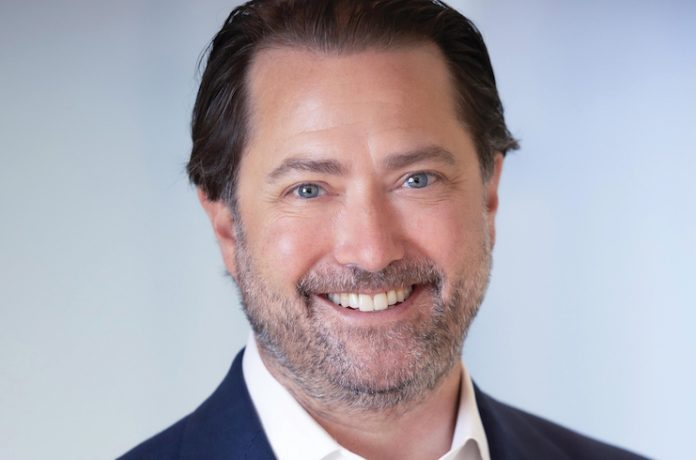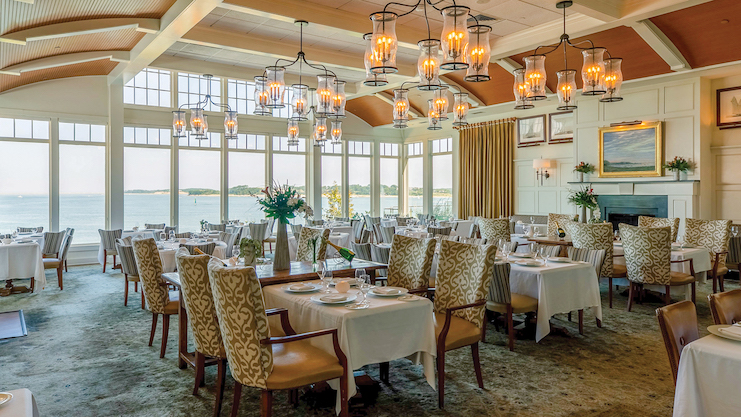
EOS Hospitality President and Chief Development Officer Mark Keiser realizes he’s been lucky—to have had the opportunity to travel at a young age, to be able to stretch in roles he wasn’t quite ready for, and to find mentors and friends that supported him in an industry that always challenged him. As Keiser described for LODGING, he and his partners at EOS Hospitality—CEO Simon Mais and founder and chairman of EOS Investors, LLC, Jonathan Wang—are now poised to return the favor to the industry that they themselves have found so rewarding, mainly by providing opportunities for their people and communities.
Keiser said it wasn’t his restaurant job in high school but the year he spent as a foreign exchange student in France that made him “fall in love with the idea of making a career in hospitality.”
Although Keiser said most of his classmates at the Cornell hotel school in the mid-1990s were on track to become general managers, he himself never aspired to an operational role. He did serve as a hotel bellman at the resort currently known as the Embassy Suites Myrtle Beach to fulfill a program requirement, but he managed to avoid being “a rotational intern”—which, as he learned the hard way, might have proved helpful a bit later in his career. Keiser’s first hotel job after graduation was not at a property but in the corporate office of Wyndham International, working on a fledging brand called HomeGate Inns & Suites. He functioned “as a kind of chief of staff” for the president of the company, which was growing an extended-stay brand when that was a relatively new concept. As Keiser described, “I was in the catbird seat of a new creation, helping make decisions that involved running properties with more limited service, such as twice-weekly—instead of daily—housekeeping, and front desk hours limited to 7 a.m. to 7 p.m.”
Challenged at one point by his boss at Wyndham/HomeGate, Troy Pentecost, to “really work” by actually running a property, Keiser found that meeting that challenge was complicated by the shortcut he took—sidestepping the front desk and other GM-track experiences. “I made all the mistakes I possibly could make,” he said. However, Keiser said he learned enough to ultimately be able to convince Prime Hospitality, which had acquired HomeGate from Wyndham, to let him take on the GM role at three properties in the Austin, Texas market.
Returning to Corporate Roles
Although that on-property experience was valuable, Keiser chose to return to the corporate environment in 1999, when friend and mentor Judy Hendrick—the now-retired former CFO of Aimbridge Hospitality—brought him to Wyndham as manager of corporate finance and real estate development. Once again, finding himself lacking some crucial experience that would have eased the transition, he recalled “there was a lot of hard learning,” but said Hendrick “gave me a lot of latitude to moonlight in different departments.” After six years in Texas, the Baltimore native wanted to return to the East Coast and work in a “higher-profile environment.” He accepted a position as a lodging equity research associate at Bear Stearns in New York City. And just as Keiser learned he preferred the corporate environment to the property-level experience from his time as a GM in Texas, from his new position he learned that he enjoyed research but not so much “writing lengthy tomes that no one seemed to read.” “What I liked was the storytelling part, convincing people about how I thought they should invest in the hotel sector,” he clarified.
Move to Starwood
Keiser repeatedly mentioned how his early career moves generally involved taking risks—including lucky breaks that required stretching beyond what could be reasonably expected based on his previous background—and recommended that industry up-and-comers do the same while they’re young. Although he learned from his two years at Bear Stearns that the brokerage business wasn’t for him, he maintained that taking that position enabled him “to parachute into a role that I probably couldn’t have gotten otherwise” within Starwood Hotels & Resorts Worldwide, where he spent more than 10 years, rising to VP development.
During those Starwood years—including four years working for another greatly admired mentor, Alison Reid, now chief global growth officer at Aimbridge Hospitality—Keiser learned it all: “We were growing the luxury brands, growing all of Starwood’s brands in the Caribbean, and leading the deals where we were investing capital and managing the properties,” he related. “Ultimately, I was running the western half of the U.S. with two teams—one that was responsible for our growth under hotels we manage and one that was growing the brands under a franchise arrangement.”
Yet after more than a decade with a large organization, Keiser was again ready for a change. Seeking “something global” that would enable him “to help launch emerging brands,” he moved to SH Hotels & Resorts in 2015. There, he was responsible for the global growth of three brands: 1 Hotels, which was mission driven “especially in its sustainability aspect”; the luxury Baccarat Hotels, which let him dabble in “the finer things in life;” and the boutique Treehouse Hotels. During his six years at SH, he led the expansion from four hotels in the pipeline in 2015 to nine open hotels and 23 additional hotels in the pipeline in 2021.
A Shared Vision at EOS
Keiser reflected on his career, which had then spanned nearly 25 years, and the decision to join EOS during the pandemic, commenting, “Jonathan had been a respected industry friend for about 15 years, and during the pandemic, we began speaking more frequently.” They were both interested in how they could have a positive impact on “the human element” of the industry. As Keiser put it, “Jonathan and I share the vision of changing the industry by focusing on how to make our employees’ lives better and how to make the communities they live in better.”
That was the thinking behind his decision to join Wang and become a vital part of EOS Hospitality, which manages hotels owned by EOS Investors as well as for select third parties. The platform focuses on “not just the growth, but also how we can impact more lives as we continue to grow,” he explained. As Keiser pointed out, EOS, which Wang founded in 2017, had been growing steadily but “quietly,” in keeping with a strategy of investing in regional resorts and managing these acquisitions itself. However, the third-party management platform has already significantly enlarged its portfolio, and with that expansion comes the opportunity to support the kind of initiatives he and Wang wish to grow along with their business, such as the Community Impact program, launched in 2022. Through the program, hotels support hyperlocal causes and donate a percentage of rooms revenue directly to community nonprofits.
These efforts, said Keiser, are in keeping with the spirit of the industry he loves. “As hotels go into new communities, they not only provide tax revenue and jobs, but they also have the ability to make positive change in those communities, transforming lives and providing hope.”
Challenges and Rewards
A learning experience with a Wyndham leader EOS Hospitality President and Chief Development Officer Mark Keiser cited important mentors in his career, including Alison Reid, currently chief global growth officer at Aimbridge Hospitality, and Judy Hendrick, now-retired former CFO of Aimbridge. Knowing he was interested in development, Hendrick turned him over to another mentor, Jerry Thoele, a seasoned negotiator running Wyndham’s luxury properties who had a reputation for being difficult. That reputation, Keiser learned, was really about demanding that his associates deliver on commitments and meet expectations based on established timelines, a walk he himself walked.
Thoele served as a model for Keiser’s own approach to staff development—by literally bringing Keiser along. “I wasn’t just handling the analytical work behind the scenes; he brought me on every trip and included me in every meeting, even the tough meetings where we were delivering bad news and those where he might have otherwise taken sole credit as the consummate dealmaker,” Keiser related. Including him in these types of negotiations, Keiser said, taught him how it all comes together at the end—and the best way to grow teams himself.













